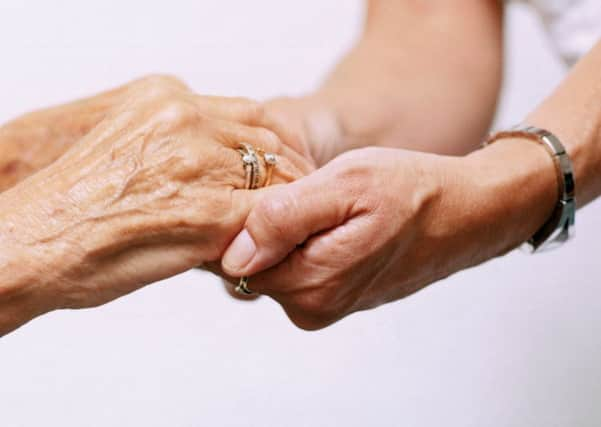Tim Flinn: Dying with dignity should be a basic human right


We had seen it coming: after a long happy lifetime of exercise she now found walking painful. She was also almost stone deaf, but she remained pleased to see her friends and thus far had successfully avoided such elderly embarrassments as incontinence and blindness, so up to that point her quality of life wasn’t dire.
However, it is well said that when a Labrador or even a collie cross refuses good food and drink, then something is seriously amiss. Thus we knew the end was near when she more or less put herself on to the Liverpool Pathway by finally refusing both food and drink.
Advertisement
Hide AdAdvertisement
Hide AdThe vet agreed and gave Zen a small injection to put her to sleep, followed by a massive dose of the same chemicals to close down her vital organs forever.
The process was dignified, painless and quick, taking less than two minutes. We took her home, had a good weep, dug a hole in the woodland section of our garden and buried her. Now she is at peace and above is a brass plaque with her name, dates and “Zen, a beloved pal”.
Seeing how it all went, I for one, wish for exactly the same ending when I run out of road. Yet as things stand it will be denied me.
Why?
The answer to my question is typically answered in the following points: n That euthanasia is against the will of God and that life is sacred. n That it starts a slippery slope, and that it devalues some lives. n That it may not be in the patient’s best interest and that proper palliative care may be available. n Regulation may be weak or inadequate, and that it gives doctors too much power. n Finally, that it could put pressure on the vulnerable and that people sometimes recover from the most extreme conditions.
At the same time, it’s argued that proper legal and medical measures to protect against abuse are available, that the “right to die” is a human right. That we are born free to decide upon our own lives.
Medical resources are scarce and valuable, and there are greater priorities than extending a life whose quality has permanently vanished.
Moral rules are not selective and all the major religions and governments and legal systems already sanction deliberate killing under certain circumstances.
Euthanasia has been part of nearly every human society and not unknown in nature.
Advertisement
Hide AdAdvertisement
Hide AdWhy is death assumed to be a bad thing? Many old and sick people welcome it.
Involuntary euthanasia is a serious issue, but is that enough to stop voluntary euthanasia where all reasonable safeguards and permissions are in place?
Surely those of sound mind who have lived their three score years and ten should be able to predetermine the conditions and timing of their own release if they so wish?
A human right indeed.
Tim Flinn is a retired educational psychologist. He lives in Garvald, East Lothian.